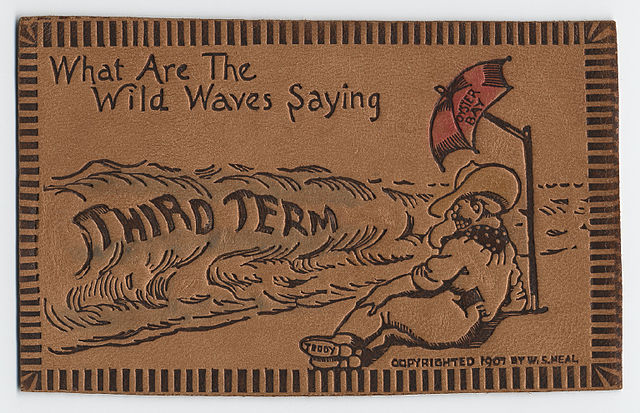
More words that are often confused.
Wave/ waive
As a noun, wave refers to the way water moves against the shore, curling and then breaking. More symbolically, a wave can also be something that happens quickly or gets bigger, just as a wave may seem to do as it approaches a beach. A wave may also be when people move their hands back and forth to either say hello or draw attention to themselves. Hair is often described as being arranged in waves or curls. Students and ajarns in the sciences are also familiar with the term wave being used in physics to describe a
periodic disturbance of the particles of a substance which may be propagated without net movement of the particles, such as in the passage of undulating motion, heat, or sound.
As a verb, to wave means that someone is moving a hand back and forth, as described above, or more generally, when anything moves back and forth. This idea of moving back and forth is part of the origins of the word wave, some centuries ago. The verb to waive means to give up any right or claim on something. If we renounce or do not claim something that we might have claimed, then we have waived it. The origins of this word have to do with abandoning or giving up. Some examples of usage follow:
- A proposal to waive criminal offences against bribe givers who provide useful information on graft to officials will be tabled at the National Anti-Corruption Commission (NACC)’s meeting next week, NACC secretary-general Sansern Poljiek said yesterday.
- Myanmar plans to offer an indefinite tax exemption to businesses that export 100 per cent of output, in a bid to boost the country’s exports and tackle a widening current-account deficit. Aung Naing Oo, director-general of the Directorate of Investment and Company Administration (DICA), announced that the waiver would be for life under new investment policies.
- Advanced Info Service has partnered with Forth Smart Service to waive service fees for AIS prepaid mobile-phone subscribers who top up their accounts by at least Bt50 at FSMART’s well-known Boonterm kiosks nationwide.
- The number of Thai nationals refused entry to Japan hit record levels last year, mainly because of the visa waiver that came into force in 2013, a Japanese daily reported recently.
- Fame came at a price for a Spanish boy who mistakenly racked up 100,000 euros ($112,000) in advertising fees with Google as he attempted to make his brass band famous online. This week, though, the Internet giant said they would waive his exorbitant bill after realising the 12-year-old made a costly “mistake.”
- The Thai Government has waived for three months the B1,000 fee for single-entry tourist visas for tourists from all countries – not just the 19 countries as announced by Cabinet last month.
- Winless NBA Pelicans waive Stephenson, expected to add Goodwin.
- Thai Government waives tax for venture capital firms; sets up 500-million Baht fund for start-ups.
- Retailers brace for wave of store closures.
- Augmented/virtual reality, wearable tech expected to rule the next wave of innovations in Thailand.
- According to the global consulting firm Accenture, Asean will play host to the next wave of growth in global fintech investment in 2016.
- AIS aims to make waves in video content market.
- A fourth wave of migrants is coming into Thailand to retire, study, make money or as a waypoint for further adventures
- KTB to ride digital wave for third place among big four.
- Thai New Wave Cinema is an unofficial label denoting movies produced since the Asian financial crisis of 1997.
- Songkran revellers celebrate the new record of the alcohol-free human wave on Khao Neao road in Khon Kaen on Friday night.
- Brain wave: using sound to diagnose concussion.
- The “highest tide rise in 50 years” saw waves up to four-metres hit Pak Phanang coastal areas, swamping homes, farmland and fishponds.
- New wave of robots set to deliver the goods.
- Dating service PokeDates wants to ride the ‘Pokemon Go’ wave.
- Yet another talented young actress is dropped into yet another young-adult science-fiction franchise in “The 5th Wave”, which stars Chloe Grace Moretz, whose previous movies have included “Let Me In” and “The Equalizer.”
- I was much further out than you thought, and not waving but drowning.
- “One of the biggest mistakes beginners make,” says Carol Philips, founder of the North Shore Surf Girls surf school and a pioneer of big-wave body boarding for women, “is that they equate catching a wave with standing up.”

As often, when short words look very similar, it can be a challenge to keep them apart in our minds, and not confuse one for the other. The key in not confusing wave and waive is to remember which word has a letter i in the middle of it. One way to do so would be to tell ourselves a little story that associates the letter i with the word waive. We might make up a sentence such as
I waived the right to stay still when I waved my hand.
Note that in the phrase I waive, the letter I appears before and in the middle of the word. If we remember a sample sentence such as this, it is less likely we will make the common mistake of spelling these words wrong. The word waive is often seen in a specific legal context, while the word wave is used to describe more general things. Any student planning a thesis in law or an ajarn writing an academic article might approach the challenge of correct spelling by being sure about at least one of these words means. A law student might make a special effort to be absolutely sure that the verb to waive when used about someone’s right to silence, for example, would be spelled with a letter i in the middle. This certainty means that the other spelling wave must refer to the other word, with its different meaning used in different contexts. Or we might just learn to associate the word wave with the word hand, both words having four letters, so that it becomes natural when the letter i appears in the middle of the word waive, to associate it with other meanings. When two words are similar, if we are sure to learn at least one spelling correctly, we can usually assume that the other spelling refers to a different meaning of the similar word, and we can avoid confusing the two.

(All images courtesy of Wikimedia Commons).
